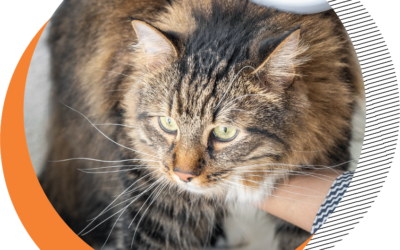
Having a Pet is Good for a Child’s Growth
By: Maryam Smeer
Translator : AWI Team
Who would have thought that petting animals is not only fun, but it also provides many benefits to children’s growth and development.
Here are some of the benefits that children get when interacting with pets:
1. Developing Children’s Sense of Responsibility
When children take care of their pets, they learn a lot about responsibility. They will perform animal care activities such as feeding, brushing, taking care of the animal’s health and more. These activities teach children to pay attention to the needs of other living things. This will help them develop a sense of responsibility and independence.
2. Developing Social Skills
Who would have thought that pets could be a good catalyst for social interaction. The American Academy of Child & Adolescent Psychiatry (AACAP) states that caring for pets helps children learn how to socialize with others. These interactions teach children to understand the feelings and needs of other beings. This can help them develop empathy and compassion
2. Developing Social Skills
Who would have thought that pets could be a good catalyst for social interaction. The American Academy of Child & Adolescent Psychiatry (AACAP) states that caring for pets helps children learn how to socialize with others. These interactions teach children to understand the feelings and needs of other beings. This can help them develop empathy and compassion
When they are with their dogs, even socially awkward kids frequently feel more at ease engaging with others.
3. Emotional and Empathic Benefits
Pets provide unconditional love. This can help children feel loved and accepted. This is important for their emotional development. Pets can be loyal friends who support them in difficult situations or when they feel lonely.
Caring for pets also teaches children to understand and feel what their animals feel. It also improves their ability to empathize, which is an important social skill in life.
4. Boosts Self-Confidence
The responsibility of caring for a pet can boost a child’s self-confidence. When they see their pets grow up healthy and happy because of the care they provide, children feel proud and confident in their abilities.
5. Physical Health Benefits
Physical activity with pets will also train children physically. When keeping animals, children often engage in activities with the animals such as walking or playing in the park. This will help children stay active and healthy. It can also be a fun way to ensure children get the physical exercise they need every day.
6. Stress Reduction
Studies show that interacting with pets can reduce stress and anxiety levels. Petting or playing with pets can increase the production of happy hormones such as oxytocin and reduce stress hormones such as cortisol. Therefore, the
presence of a gentle and affectionate pet can have a calming effect that helps children feel calmer and happier
7. Improved Cognitive Skills
Pets are often a source of important lessons about the life cycle, including birth, illness and death. Engaging children in activities involving pets, such as practicing new tricks or understanding an animal’s dietary needs, can improve their cognitive skills. It can also foster an interest in science and
biology.
Having a pet can be a wonderful experience for children. It will help them grow into responsible, empathetic, and physically and emotionally healthy individuals.
Source :
Aacap.org (2019, Januari. Pets And Children. Diakses pada 18 Juli 2024, dari https://www.aacap.org/AACAP/Families_and_Youth/Facts_for_Families/FFF-Guide/Pets-And-Children-075.aspx





